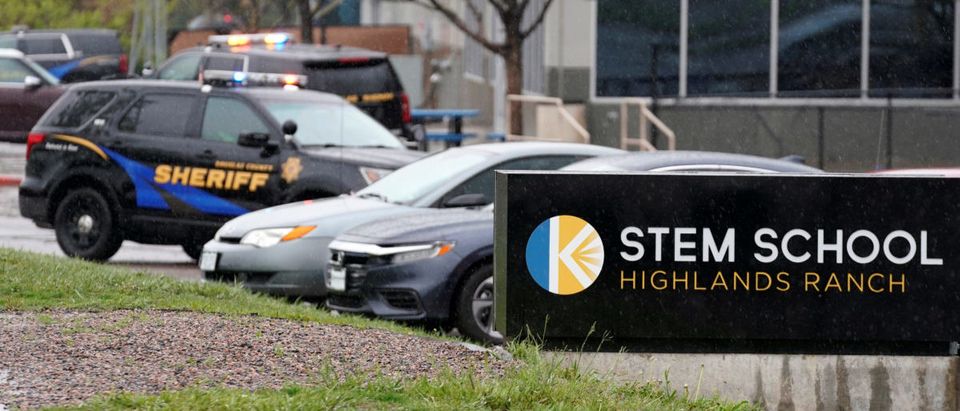Everywhere you look these days, the nation appears to be in a funk. We‘re simultaneously dealing with the global COVID-19 pandemic as nearly half the country sees spikes in new infections, a once vibrant economy with less than four percent unemployment now grapples with 40 million unemployed citizens and racial tensions have flared up in ways not experienced since the mid–to-late 1960s.
Amidst all of this angst and uncertainty, there’s an unheralded success story that all Americans should know about, appreciate and cheer. Surprisingly, this good news story comes from a sector that has been characterized recently as yet another source of national concern: higher education.
We read about escalating and unsustainable student loan debt and looming defaults; campus political correctness that features “snowflakes,” “safe spaces” and “speech codes”; and end-of year disruptions that have seen classes abruptly canceled or moved online with many graduations scrapped or conducted virtually. “Gaudeamus igitur” via webcam isn’t quite the same thing as hearing that tune while seniors assemble to receive their diplomas.
Amidst the confusion, uncertainty and disruption that all Americans have experienced since late February, engineering students have managed to carry on in ways that are truly remarkable.
For the last 10 months, I‘ve worked at Quality of Life Plus, a McLean, Virginia-based national nonprofit that matches senior engineering students with wounded or disabled veterans and first responders around the country in order to develop innovative assistive technologies that enable these American heroes to lead more enriched lives.
Some of these engineering projects enhance existing prosthetics. Others enable these men and women to re-engage in sporting activities that they enjoyed before becoming disabled. In some instances, student-created designs lead to commercially successful products that offer hope and help to thousands of people. A device that attaches to a cane or walker can help eliminate the frozen-gait problem afflicting many Parkinson‘s patients is but one example that emerged from a student–designed capstone engineering project a few years ago at California Polytechnic State University (Cal Poly).
These experiences represent win-win–win–win-win situations: for the veterans and first responders (who gain greater independence and mobility), for the students who bolster a growing and skilled American Science, Technology, Engineering, and Mathematics (STEM) workforce), for their universities (who support real–life student problem-solving experiences), for Quality of Life Plus (which enjoys greater impact) and for the entire nation (which benefits from young college graduates who show respect, appreciation and real affection for the heroes who serve and protect our country.
Moreover, an increasing number of American companies are interested in these types of relationships because they appreciate the opportunity to engage with first-rate STEM students who may become interns or talented employees.
Quality of Life Plus enjoys partnerships with 18 major universities around the country and this past year has sponsored almost 60 projects that have involved nearly 300 engineering students. Late last year, I was privileged to visit with students, faculty and administrators at three of these campuses: Cal Poly, the University of Colorado at Boulder and Colorado School of Mines.
Additionally, as the current school-year has come to a close, I’ve been able to see virtually many of the final capstone presentations at several more Quality of Life Plus university partners. Obviously, no one could have anticipated that the COVID-19 virus would have closed many campuses early, prompted shifts to online learning and disrupted many engineering projects whose completion requires side-by-side teamwork in a laboratory. Nonetheless, at every campus, there was a remarkable determination to complete as many of these projects as possible.
I saw students who were mature, motivated, focused, determined, innovative and selfless. Several volunteered to complete their projects this summer, well after their graduation. Some who planned to attend engineering grad schools this fall offered to stay with the projects. Others sought off-campus contacts who could machine-tool or use a 3-D printer to produce a needed part when the campus labs were closed.
The economists and the politicians keep reminding us that to move beyond the economic, health, and social damage caused by the COVID-19 pandemic, we’ll need, among other things, a major focus on enhancing American productivity. Some of our detractors (like China, Iran, and Russia) are openly reveling in our nation’s current difficulties.
Let them revel all they want. What I’ve seen from this year’s engineering-school graduates assures me beyond any doubt that our country will be just fine. These young people represent America at its very best. They are our future.
Charles Kolb served as Deputy Assistant to the President for Domestic Policy from 1990-1992 in the George H.W. Bush White House


